Douglas Porch - Counterinsurgency
Here you can read online Douglas Porch - Counterinsurgency full text of the book (entire story) in english for free. Download pdf and epub, get meaning, cover and reviews about this ebook. year: 2013, publisher: Cambridge University Press, genre: Politics. Description of the work, (preface) as well as reviews are available. Best literature library LitArk.com created for fans of good reading and offers a wide selection of genres:
Romance novel
Science fiction
Adventure
Detective
Science
History
Home and family
Prose
Art
Politics
Computer
Non-fiction
Religion
Business
Children
Humor
Choose a favorite category and find really read worthwhile books. Enjoy immersion in the world of imagination, feel the emotions of the characters or learn something new for yourself, make an fascinating discovery.
- Book:Counterinsurgency
- Author:
- Publisher:Cambridge University Press
- Genre:
- Year:2013
- Rating:5 / 5
- Favourites:Add to favourites
- Your mark:
- 100
- 1
- 2
- 3
- 4
- 5
Counterinsurgency: summary, description and annotation
We offer to read an annotation, description, summary or preface (depends on what the author of the book "Counterinsurgency" wrote himself). If you haven't found the necessary information about the book — write in the comments, we will try to find it.
Douglas Porch: author's other books
Who wrote Counterinsurgency? Find out the surname, the name of the author of the book and a list of all author's works by series.
Counterinsurgency — read online for free the complete book (whole text) full work
Below is the text of the book, divided by pages. System saving the place of the last page read, allows you to conveniently read the book "Counterinsurgency" online for free, without having to search again every time where you left off. Put a bookmark, and you can go to the page where you finished reading at any time.
Font size:
Interval:
Bookmark:
Counterinsurgency has staked its claim in the new century as the new American way of war. Yet, the wars in Afghanistan and Iraq have revived a historical debate about the costs monetary, political, and moral of operations designed to eliminate insurgents and build nations. Todays counterinsurgency proponents point to small wars past to support their view that the enemy is biddable if the correct tactical formulae are applied. Douglas Porchs sweeping history of counterinsurgency campaigns carried out by the three providential nations of France, Britain, and the United States, ranging from nineteenth-century colonial conquests to General Petraeus surge in Iraq, challenges the contemporary mythologizing of counterinsurgency as a humane way of war. The reality, he reveals, is that hearts and minds has never been a recipe for lasting stability and that past counterinsurgency campaigns have succeeded not through state-building but by shattering and dividing societies while unsettling civil-military relations.
Douglas Porch is Distinguished Professor of National Security Affairs at the Naval Postgraduate School, Monterey, California. A specialist in military history, he advises on security issues all over the world. His most recent book, The Path to Victory: The Mediterranean Theater in World War II , received the Award for Excellence in US Army Historical Writing from the Army Historical Foundation.

This publication is in copyright. Subject to statutory exception and to the provisions of relevant collective licensing agreements, no reproduction of any part may take place without the written permission of Cambridge University Press.
Cambridge University Press has no responsibility for the persistence or accuracy of URLs for external or third-party internet websites referred to in this publication, and does not guarantee that any content on such websites is, or will remain, accurate or appropriate.
This book was conceived in the classrooms of the Naval Postgraduate School where I teach company and field grade US and international officers. Some of them have returned from Iraq and Afghanistan in recent years not only unsettled by their experiences in those countries, but also persuaded that the hearts and minds counterinsurgency doctrines they were dispatched to apply from 2007 were idealistic, when not nave, impracticable, unworkable, and perhaps institutionally fraudulent. In short, they had been sent on a murderous errand equipped with a counterfeit doctrine that became the rage in 2007 following the publication of FM 324: Counterinsurgency as prologue to the surge commanded by General David Petraeus in Iraq. This was surely the case of US Air Force Major John Loftis, a former Peace Corps volunteer, sterling student, and a gentle, smiling man who fell victim to green-on-blue violence in Afghanistan in February 2012.
In 2010, Professor Jan Hoffenaar, President of the Netherlands Commission of Military History, invited me to address their 35th Congress at Amsterdam on the theme of counterinsurgency. My argument continues to be that what has long been called small war in its various reiterations as imperial policing or COIN (counterinsurgency operations) does not constitute a specialized category of warfare. Rather, it consists of the application of petty war tactics that its advocates since the 1840s have puffed as infallible prescriptions for effortless conquest, nation-building, and national grandeur. Small wars enthusiasts basically reject the Clausewitzian character of war in favor of a Jominian tactical and operational approach, in large part to evade democratic civilian control. Claims in doctrine for success in small wars, at least at a reasonable strategic, financial, and moral cost, have relied on mythologized versions of the past too often supported by shoddy research and flawed, selective analysis of cases. History cooked as COIN folklore can lead to people getting killed because it fails to convey that each insurgency is a contingent event in which doctrine, operations, and tactics must support a viable policy and strategy, not the other way around.
Although this message contradicted the official COIN optimism generated by neo-conservative end of history hubris combined with the triumphalism of the surge celebrated in Thomas Ricks 2009 Pulitzer Prize hagiography of Petraeus, Donald Abenheim encouraged me to expand my arguments into a short book, which Michael Watson at Cambridge University Press was persuaded to contract based on a brief prospectus. My plan was to chronicle with concision the parallel small wars experiences of the three providential democratic nations Britain, France, and the United States to illustrate against the assertions of Niall Ferguson and others that non-Western societies were seldom receptive to Western values and mores, especially when they were proselytized at the end of a bayonet. The result was that counterinsurgency methods supposedly calculated to win the hearts and minds of foreign folk invariably relied on coercion rather than persuasion. My motivation in the present work remains to create a historical record so that, in fifteen or twenty-five years time, revisionists in the style of the better war school of the Vietnam conflict, tempted to conjure up a stab-in-the-back explanation for failure in Iraq and Afghanistan, will at least have to contend with a formulated, relatively comprehensive counter-argument, rather than wait for damage to reach disturbing proportions, failure to become evident, and critics to assemble to begin the laborious, painful, humiliating, and divisive process of disengagement. Those who advocate future imperial adventures in the manner of the George W. Bush wars of the last decade should have to face the fact that they seldom achieve their goals at an acceptable price. Finally, this cautionary volume might help to avert much misery, and save lives and resources in future.
This book would not have seen the light of day without the assistance of many people. Donald Abenheim has been a source both of inspiration and ideas, and kept me focused on the task. Another of my colleagues, Carolyn Halladay, generously helped to tighten the arguments and organization of the earliest version of the manuscript. John Lynn made many helpful comments on the proposal, as did David French who read the manuscript, suggested other sources, and allowed me to consult the proofs of his The British Way in Counter-insurgency, 19451967 . William Fuller graciously allowed me access to the manuscript chapter on the Troubles in his forthcoming book on terrorism. Harold Trinkunas and Thomas Bruneau helped to shape the chapter on Latin America, Philip Williams that on the surge, and John Bew and Huw Bennett kindly saved me from errors of fact and interpretation in the case of Northern Ireland. Obviously, the opinions and interpretations remain my own and do not reflect those of the Department of the Navy or the Department of Defense. Throughout, Gian Gentile has been a kindred spirit, a voice simultaneously of reason and passion, and a model of professional integrity. I am also grateful to Michael Watson, Chloe Howell, and the editorial staff at Cambridge University Press who have been professional and supportive. Finally, it remains for me to thank my wife, Franoise, as ever for her love and support.
Font size:
Interval:
Bookmark:
Similar books «Counterinsurgency»
Look at similar books to Counterinsurgency. We have selected literature similar in name and meaning in the hope of providing readers with more options to find new, interesting, not yet read works.
Discussion, reviews of the book Counterinsurgency and just readers' own opinions. Leave your comments, write what you think about the work, its meaning or the main characters. Specify what exactly you liked and what you didn't like, and why you think so.

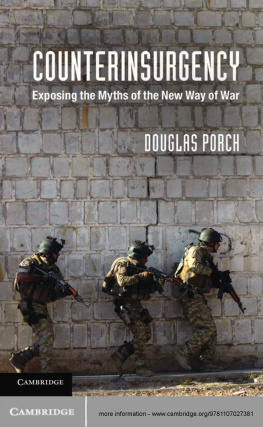
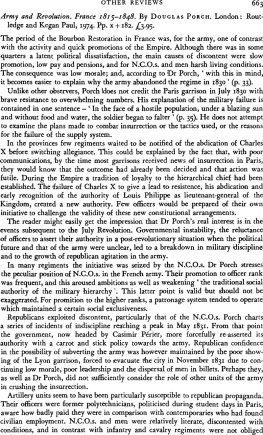
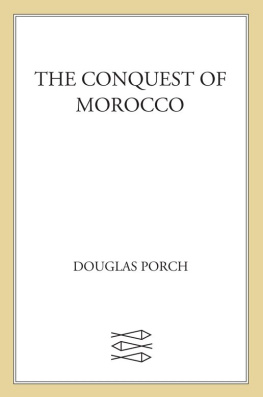



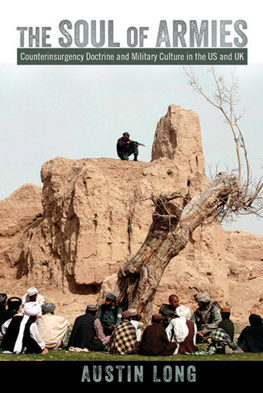

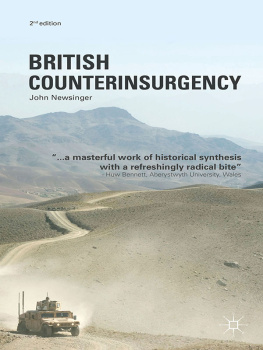

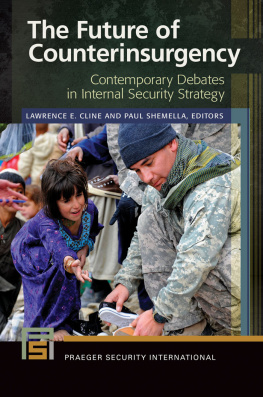
![Gregory Fremont-Barnes - A History of Counterinsurgency [2 volumes]](/uploads/posts/book/74652/thumbs/gregory-fremont-barnes-a-history-of.jpg)